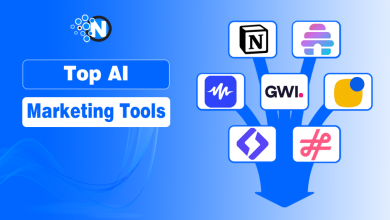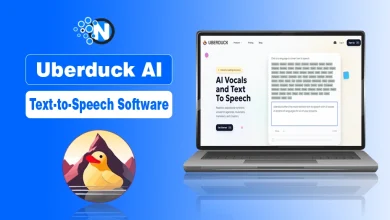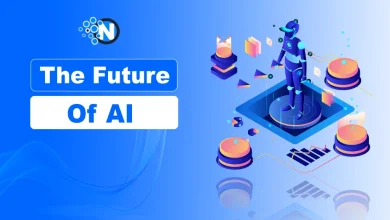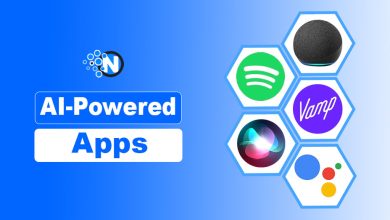The Impact of AI in Project Management: Revolutionizing the Future of Work

Accurate and efficient project management is more important than ever. Managing bigger, more complicated projects with strict deadlines and limited resources is a difficult task for project managers.
Fortunately, the latest tech advancements, especially the emergence of artificial intelligence (AI), have provided a solution for this. AI in project management has become a game-changer, offering tools and techniques that streamline workflows, improve decision-making, and ultimately increase project success rates.
This article highlights the positive impact of AI on project management and how it can help project managers carry out their jobs more efficiently.
AI in Project Management: What Is It?
Start creating Verdict in seconds, and convert more of your visitors into leads.
AI in project management is all about the use of AI technology to improve decision-making, automate processes, and optimize different project management features. This covers different aspects of project management, from scheduling and planning to monitoring development and forecasting results. Project managers can make better judgments and minimize human mistakes by using AI to use data to obtain deeper insights.
AI is a priceless tool for contemporary project management because it offers a number of significant benefits. Let’s examine a few of the most noteworthy advantages:
1. Better Ability to Make Decisions
Ability to work with tremendous amounts of data quickly and efficiently is one of the main advantages of AI. AI technologies understand patterns and trends of project data to provide to managers with knowledge not easy or even impossible to define before. This enables a project manager to identify possible risks that may arise in the project and anticipate such obstacles to make changes to a plan of action.
2. Automating Typical Tasks
Scheduling, task delegation, and progress tracking are duties that project managers frequently spend a large amount of their time on. These repetitive tasks can be automated by AI, giving managers more time to concentrate on more strategic facets of their jobs. AI ensures increased productivity and reduces the possibility of human error by automating repetitive processes.
3. Improved Risk Control
Project management requires risk management, but recognizing and reducing risks can be difficult. AI can assist by analyzing past data and spotting possible dangers that might not be immediately apparent. Project managers can detect problems before they become serious by using them to forecast delays, budget overruns, or resource shortages.
4. Tracking Progress in Real Time
Real-time tracking provided by AI-driven solutions allows project managers to keep an eye on every phase of a project’s development. This ensures transparency and enables prompt action in the event that something goes wrong. AI offers a transparent and current picture of the project’s state, whether it is used to monitor team performance, money allocation, or deadline adherence.
5. Enhanced Efficiency
AI greatly increases team efficiency through task automation and workflow optimization. By maximizing resource allocation, AI can make sure that the appropriate individuals are working on the appropriate tasks at the appropriate times. As a result, time and resources are used more effectively, project durations are reduced, and productivity rises.
Common AI Project Management Tools
Start creating Verdict in seconds, and convert more of your visitors into leads.
Different AI-powered solutions that streamline project management procedures are developed as a result of the integration of AI into project management. Some popular tools that are revolutionizing project managers’ work are listed below:
Sembly AI
An advanced solution named Sembly AI was created to improve meeting management and team cooperation. It helps teams stay focused on project objectives by using AI to transcribe, evaluate, and summarize sessions. Additionally, the software offers action items and important insights to make sure that important activities are not missed.
The Asana
Asana is a well-known project management application that uses AI to assist teams in assigning tasks, monitoring progress, and controlling deadlines. Its AI-powered algorithms help prioritize activities and suggest the best course of action to achieve project goals.
Monday.com
Another popular project management application that uses AI to increase project visibility and collaboration is Monday.com. Teams can use it to automate processes, monitor real-time progress, and spot bottlenecks that can prevent a project from being completed.
Wrike
Predictive analytics from Wrike assist project managers in anticipating possible problems before they arise. Additionally, this technology can track the amount of time spent on each activity, automate task delegation, and offer insights to enhance project planning in the future.

How Artificial Intelligence is Changing the Project Manager Role
Start creating Verdict in seconds, and convert more of your visitors into leads.
The use of AI is changing the role of the project manager by reducing the time it takes to complete repetitive tasks. Instead of spending a lot of time on different tasks such as delegating tasks, creating schedules and tracking the work progress, the project managers can use artificial intelligence to help with such tasks.
This shift helps managers to spend more time on decision making and planning that frequently require bringing in human factors into consideration. When AI gives real-time forecasts and data, project managers get prepared for challenges, reduce risks, and make sound decisions to advance project results.
AI also improves teamwork by facilitating communication, which keeps everyone informed and on the same page on the project’s goals. Additionally, it encourages openness by providing managers with a real-time picture of the performance of their projects. Project managers are increasingly acting as strategic leaders and facilitators as AI tools advance, leading the team through difficult problems rather than overseeing daily operations.
In addition to increasing efficiency, this change raises the project manager’s job to concentrate on innovation, problem-solving, and relationship-building—areas where AI cannot take the place of human intuition and leadership.
The Channelgens of Using AI in Project Management
Start creating Verdict in seconds, and convert more of your visitors into leads.
To use AI’s potential, businesses must overcome different obstacles when integrating it into project management. The high upfront costs of implementing AI technologies, which include the price of hardware, software, and the infrastructure required to facilitate AI integration, are one of the main challenges. For small to mid-sized enterprises that do not have enough funds for technology changes, this can be a expensive.
Opposition to change among employees is another issue. AI may make many workers feel intimidated because they think their jobs will be replaced by automation. This frequently results in hesitancy or resistance when implementing new systems. Organizations must stress that AI is there to support and increase productivity, not to replace jobs, and offer adequate training to enable staff members to become accustomed to the new tools in order to overcome this.
Since AI systems need a lot of data to work properly, data security and privacy issues are vital. To prevent breaches and legal issues, it is essential to ensure businesses must follow data protection laws such as GDPR.
It can be difficult to make sure that new AI technologies integrate seamlessly with the project management systems that many firms already have in place. A successful deployment depends on striking a balance between the necessity of AI-driven innovation and the dependability of existing procedures.
Final Words
Start creating Verdict in seconds, and convert more of your visitors into leads.
Businesses’ approaches to project execution are changing as a result of the growing use of AI in project management. AI makes it possible for project managers to perform more productively and efficiently by automating repetitive processes, boosting risk management, and improving decision-making.
Even while adopting AI can be difficult, the advantages greatly exceed the disadvantages, making AI an essential part of modern project management. AI’s influence on project management will only grow as it develops further, influencing the nature of work in ways we are only now starting to comprehend.




